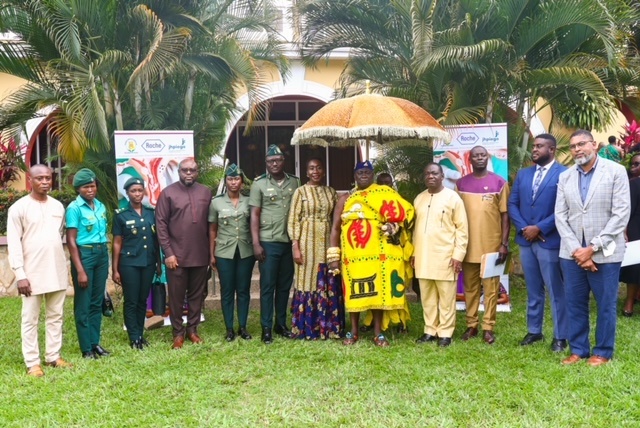
Hoffmann-La Roche has partnered with the Johns Hopkins Programme for International Education in Gynaecology and Obstetrics (Jhpiego) in an effort to enhance cervical and breast cancer outcomes in resource-limited nations. The cooperation is worth US$400,000 as an initial investment.
The piloting of this programme under the international cooperation’s umbrella starts in Ghana’s Bekwai district in the Ashanti Region and can later spread to other parts of the country, as well as numerous other African, Southeast Asian and Asia Pacific nations.
“We launched in Ghana because the conversation started here, and so we said let’s have the pilot project here. The pilot project will give us a lot of lessons through the implementation, which we can then cascade across this country and many others in Africa, Southeast Asia and the Asia Pacific regions,” said Country Manager for Roche (Ghana) Dr. Philip Anderson.
In 2020, breast cancer was the most frequently-diagnosed cancer in women worldwide… accounting for 22.1 percent of cancer deaths in Africa. In Ghana, breast cancer accounted for 31.8 percent of cancer incidents.
The World Health Organisation (WHO) has predicted that 5,000 new cases of cervical cancer will be diagnosed and 3,361 lives claimed in Ghana as a result of cervical cancer.
“We are making an initial investment of US$400,000 toward this type of project. But then we also bring in expertise, the skill-sets through those assets that we have to the full in this partnership,” noted the Country Manager.
The most common cancer among women and the one that results in most cancer-related fatalities is breast cancer. Similar to breast cancer, more than 600,000 women will be diagnosed with cervical cancer in 2020 – making it the fourth most-frequent cancer in women. Cervical cancer is the leading cause of cancer-related deaths among women in sub-Saharan Africa, and it is preventable by early HPV screening.
The most prevalent disease afflicting women in Ghana is cervical cancer, which is an issue that is becoming more and more serious in developing nations. Although Accra and Kumasi have larger populations – 4.7 million and 4 million, respectively – it has been shown that the Greater Accra Region, where this study was conducted, has a greater prevalence of cervical cancer than the Ashanti Region.
Partnership
Roche and Jhpiego will give low- and middle-income nations in Africa and Asia, where the prevalence of breast and cervical cancers is highest, priority in their new cooperation. To improve accessibility to diagnosis and treatment, the programme will employ a multifaceted strategy.
In order to promote the adoption of policies and funding of programmes for education, screening and patient care, it will involve providing technical and clinical assistance to regional providers and exchanging data with local decision-makers.
“Roche is partnering with organisations like Jhpiego, the Ghana Health Service which are also very well skilled at engaging in training and equipping frontline health workers, navigating the healthcare system and are involved in health care-strengthening activities,” the Country Manager said.









